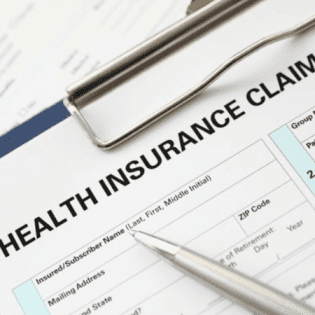Addiction Treatment
Admissions & Insurance
Addiction Treatment Admissions & Insurance
Begin Your Addiction Recovery Journey with
Prosperity Haven
Begin Your Addiction Recovery Journey
with Prosperity Haven
At Prosperity Haven, we understand how challenging of a time this can be for you and your loved ones. That’s why from the moment you make contact with us, we’re here to tell you that you won’t have to do this alone. Our compassionate admissions team has a deep understanding of what it means to battle addiction, and each staff member is committed to answering your questions, addressing your concerns, and helping you find which of our addiction treatment programs is best for you or your loved one.
Once you’re ready to take the first step, we promise that you will be our number one priority. Our admissions process consists of three easy steps and our team will go to great lengths to help you any way we can. From the initial contact, to verifying your insurance, to your treatment application and booking your admission, we’re dedicated to making each step of the process as simple and stress-free as possible.
3 Easy Steps to Getting Started
STEP ONE:
CONTACT US
We’ll work with you one-on-one to discuss you or your loved one’s specific situation, and how our various addiction treatment services can help. Our goal is to make sure you feel informed, supported, and comfortable with your choice for treatment. Contact us whichever way is most convenient for you.
STEP TWO:
VERIFY INSURANCE
Click below to start the confidential insurance verification process. Once we have received your information, one of our admissions specialists will reach out to your provider and get back to you with a detailed and easy-to-understand summary of your coverage in a matter of minutes.
STEP THREE:
APPLY & SCHEDULE
Whether this is your first time in rehab or you’re re-entering treatment, our mission is to meet you where you are in the process. We provide you with the tools you’ll need to live a happy, healthy, and sober life. During a consultation, we’ll discuss which level care and approach will be best for you based on your application and make sure you have all the information you need going into treatment.


STEP ONE:
CONTACT US
We’ll work with you one-on-one to discuss you or your loved one’s specific situation, and how our various addiction treatment services can help. Our goal is to make sure you feel informed, supported, and comfortable with your choice for treatment. Contact us whichever way is most convenient for you.
STEP TWO:
VERIFY INSURANCE
Click below to start the confidential insurance verification process. Once we have received your information, one of our admissions specialists will reach out to your provider and get back to you with a detailed and easy-to-understand summary of your coverage in a matter of minutes.

STEP THREE:
APPLY & SCHEDULE
Whether this is your first time in rehab or you’re re-entering treatment, our mission is to meet you where you are in the process. At Prosperity Haven, we provide you with the tools you’ll need to live a happy, healthy, and sober life. During a consultation, we’ll discuss which level care and approach will be best for you based on your application and make sure you have all the information you need going into treatment.
QuestionS About Getting Started?
Complete the Form Below to Schedule A Confidential Consultation Today


Does Insurance Cover Substance Abuse Treatment in Ohio?
Yes, at least to some degree, your insurance will help cover the cost of substance abuse treatment, but you still may have some out-of-pocket expenses. The exact amount you’ll pay out-of-pocket will vary based on the type of coverage you have, the level of care and length of stay in rehab, and the details of your treatment plan.
At Prosperity Haven, we don’t believe that your insurance should keep you from accessing the quality care you need. Our experienced admissions coordinators will work closely with your insurance provider on your behalf to make sure that you receive the maximum insurance benefits. We’ll do everything we can to make sure there are no obstacles in the way of your journey towards recovery.
Does Insurance Cover Substance Abuse Treatment in Ohio?
 Yes, at least to some degree, your insurance will help cover the cost of substance abuse treatment, but you still may have some out-of-pocket expenses. The exact amount you’ll pay out-of-pocket will vary based on the type of coverage you have, the level of care and length of stay in rehab, and the details of your treatment plan.
Yes, at least to some degree, your insurance will help cover the cost of substance abuse treatment, but you still may have some out-of-pocket expenses. The exact amount you’ll pay out-of-pocket will vary based on the type of coverage you have, the level of care and length of stay in rehab, and the details of your treatment plan.
At Prosperity Haven, we don’t believe that your insurance should keep you from accessing the quality care you need. Our experienced admissions coordinators will work closely with your insurance provider on your behalf to make sure that you receive the maximum insurance benefits. We’ll do everything we can to make sure there are no obstacles in the way of your journey towards recovery.
Quick, Confidential Insurance Verification Process
Trying to understand your insurance coverage and the details of your policy for addiction rehab is a time-consuming, difficult task. We want to take the frustration out of your hands and make the admissions process as easy as possible. We’ll be happy to contact your provider and give you a clear run down of your coverage and explain any costs you’ll have to pay out-of-pocket.
What to expect
 Here’s what you can expect when verifying your insurance with us:
Here’s what you can expect when verifying your insurance with us:
- No long wait times, no holding times, no automation menus
- We don’t outsource our calls, you’ll speak directly with one of our team members
- Friendly, compassionate, and patient admissions team with years of experience
- We’ll provide a solution that fits you or your loved one’s specific needs
- No complicated details about your policy, co-pays, or benefits – we give you an easy to understand break-down of your addiction treatment options

What to expect
Here’s what you can expect when verifying your insurance with us:
- No long wait times, no holding times, no automation menus
- We don’t outsource our calls, you’ll speak directly with one of our team members
- Friendly, compassionate, and patient admissions team with years of experience
- We’ll provide a solution that fits you or your loved one’s specific needs
- No complicated details about your policy, co-pays, or benefits – we give you an easy to understand break-down of your addiction treatment options

We accept most commercial/employer based insurance plans for addiction treament
A Few Of The Most Common Insurances We Work With:
verify your insurance
Complete the Form Below to Find Out if You Have Coverage
"*" indicates required fields
Finding Affordable Addiction Treatment
Near Cleveland, OH
Finding Affordable Addiction
Treatment Near Cleveland, OH
At Prosperity Haven, we believe that cost and insurance should never get in the way of receiving the high quality addiction treatment services that you deserve. Taking the first step towards recovery is difficult enough, which is why we take the stress away from you by dealing directly with your insurance provider. We’ll give you a comprehensive summary of your benefits, explain any out-of-pocket expenses that insurance doesn’t cover, and we’ll work with you or your loved one to make treatment affordable through payment plans.
If you or a loved one has any questions about their insurance coverage and costs of rehab, we’re here to help. Call us today at 440-253-9915 to speak directly with a team member.







